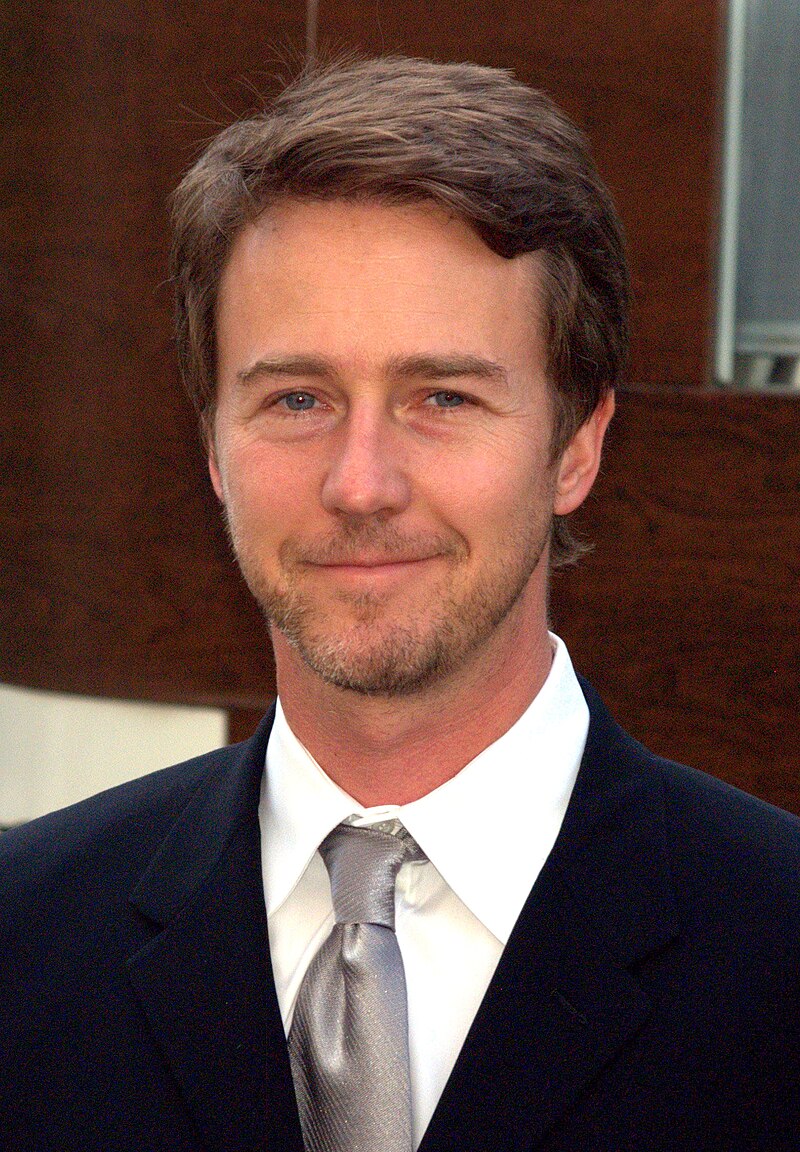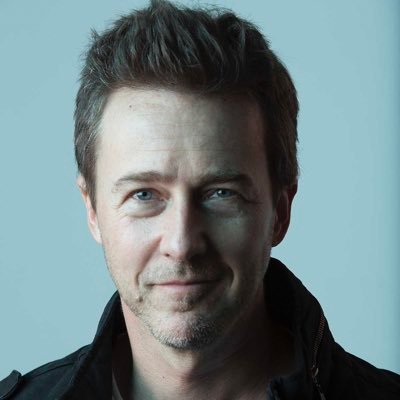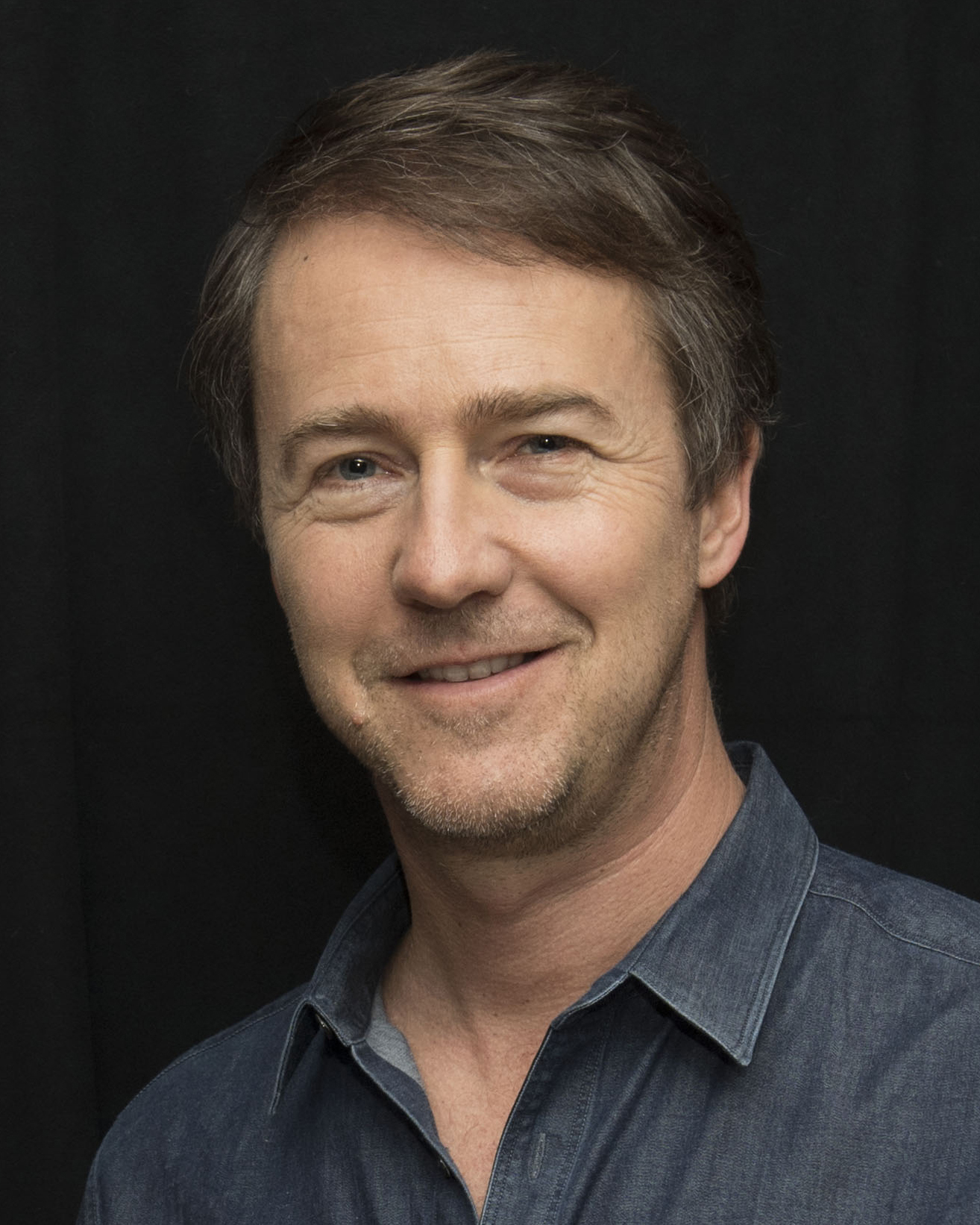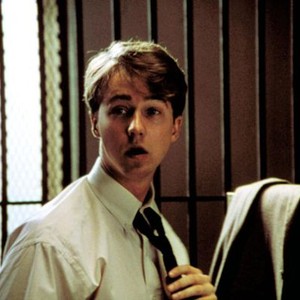Edward Norton
Edward Norton

Edward Harrison Norton, born on August 18, 1969, is an esteemed American actor whose passion for theater was ignited during his childhood, frequenting local venues. Upon graduating from Yale College in 1991 with a history degree, he briefly worked in Japan before relocating to Manhattan to pursue an acting career. Norton's breakthrough came with his stellar performance in Primal Fear (1996), earning him a Golden Globe for Best Supporting Actor and an Academy Award nomination. He further solidified his reputation with his portrayal of a reformed neo-Nazi in American History X (1998), which also earned him an Oscar nod for Best Actor. Norton's involvement in Fight Club (1999) catapulted him to cult status.
In 2003, Norton established the production company Class 5 Films, contributing as director or producer for various projects, including Keeping the Faith (2000), Down in the Valley (2005), and The Painted Veil (2006). His acting prowess continued to shine in films such as The Score (2001), 25th Hour (2002), The Illusionist (2006), Moonrise Kingdom (2012), and The Grand Budapest Hotel (2014). Among his commercial hits are Red Dragon (2002), Kingdom of Heaven (2005), The Incredible Hulk (2008), and The Bourne Legacy (2012). Norton received critical acclaim for his role in Birdman (2014), garnering yet another Academy Award nomination.
While Norton's talent is widely praised, he has faced criticism for his approach to filmmaking, often challenging to collaborate with due to his involvement in editing and screenplay revisions against the wishes of other producers. Despite this, Norton maintains a low-key personal life and prioritizes activism, serving as a trustee for Enterprise Community Partners, president of the American Maasai Wilderness Conservation Trust, and UN Goodwill Ambassador for Biodiversity. He is married to Canadian film producer Shauna Robertson, with whom he shares a son. In March 2022, Norton made headlines by becoming the first celebrity sponsor of the international Anti-Corruption Foundation on the day of Russian opposition leader Alexei Navalny's sentencing.
Edward Harrison Norton, born on August 18, 1969, hails from a progressive Episcopalian family in Boston, Massachusetts. Descended from John Norton, a renowned Victorian architect from Bristol, UK, known for his church designs and work on the Tyntesfield Estate, Norton spent his formative years in Columbia, Maryland. His father, Edward Mower Norton Jr., served as a Marine lieutenant in Vietnam before dedicating himself to environmental law and conservation advocacy in Asia, later serving as a federal prosecutor in the Carter administration. Norton's mother, Lydia Robinson "Robin" Rouse, a beloved English teacher, passed away from a brain tumor in 1997. His maternal grandfather, James Rouse, was a prominent figure in real estate development, co-founding Enterprise Community Partners.
Norton's passion for theater ignited at a young age when he watched a musical production of Cinderella starring his babysitter at the Columbia Center for Theatrical Arts (CCTA) at the age of five. He made his professional debut in Annie Get Your Gun at Toby's Dinner Theatre at just eight years old and further honed his craft in theatrical productions under the guidance of director Toby Orenstein at CCTA. His talent was recognized early on, as he won the acting cup at the Pasquaney summer camp in 1984 and later returned as a theater director.
Inspired by actors like Dustin Hoffman and Robert De Niro, Norton found his calling in acting, drawn not only to their performances but also to their relatable personas. Graduating from Wilde Lake High School in 1987, Norton continued his education at Yale College, where he earned a BA in History while also delving into Japanese studies and pursuing his passion for acting on stage. After completing his undergraduate studies in 1991, Norton briefly worked in Japan as a representative for Enterprise Community Partners before embarking on his acting career.
After a stint of five months in Japan, Norton relocated to New York City, where he sustained himself through various odd jobs. Eager to refine his craft, he dedicated six months to researching different acting methodologies, with a particular focus on method acting. His pursuit led him to acting coach Terry Schreiber, whom he encountered while seeking a Japanese translator for a play in Tokyo. Under Schreiber's guidance, Norton delved deeper into the nuances of method acting, embracing the concept of "multilingual actors" capable of employing diverse techniques to embody versatile roles.
Simultaneously, Norton immersed himself in New York's vibrant theater scene, writing scripts for productions at the Signature Theatre Company and gracing the stages of off-Broadway theaters. His standout performance in Brian Friel's Lovers caught the attention of esteemed playwright Edward Albee, known for his one-act plays, which Norton held in high regard. Although Norton initially auditioned for a role in Albee's Finding the Sun in 1994, he didn't secure the part. However, Albee recognized Norton's talent and offered him a role in Fragments instead. Norton's rehearsal performance left a lasting impression on Albee, who praised him as a rare talent that truly impressed him. Reflecting on his journey, Norton drew inspiration from the experiences of fellow actor Al Pacino, who similarly honed his skills in the New York theater scene amidst the challenges of establishing himself in the industry.
In 1995, casting agent Shirley Rich stumbled upon Norton's talent, leading him to rent a studio space close to The Public Theater, where he showcased his audition performances of Shakespearean works to her. Rich was thoroughly impressed by Norton's acting prowess and wasted no time in introducing him to the decision-makers behind the noir drama Primal Fear, based on William Diehl's 1993 novel. Despite facing competition from over two thousand other hopefuls, Norton ultimately clinched the coveted role.
Primal Fear hit theaters in 1996, with Norton portraying Aaron Stampler, an altar boy accused of murdering a Roman Catholic archbishop and defended by attorney Martin Vail, played by Richard Gere. Norton's performance captivated critics, with Roger Ebert of the Chicago Sun-Times hailing his portrayal as "completely convincing," while Peter Stack of the San Francisco Chronicle dubbed him "the one to watch" following his debut. Norton's stellar performance earned him a Golden Globe Award for Best Supporting Actor, and he secured an Academy Award nomination in the same category for his role in the film.
In addition to Primal Fear, Norton graced the big screen in two other notable films released in 1996. He portrayed Holden Spence in Woody Allen's musical film Everyone Says I Love You and depicted Larry Flynt's lawyer Alan Isaacman in Milos Forman's biographical drama The People vs. Larry Flynt.

References
- Brown, Mick (April 7, 2007). "Critical moment". The Daily Telegraph. Archived from the original on March 14, 2019. Retrieved March 14, 2019.
- a b Vincent, Sally (April 12, 2003). "He who calls the shots". The Guardian. Archived from the original on September 10, 2014.
- ^ "Edward Norton 🌻🇺🇦's tweet – ""don't be idle. This toad sitting on an oil pipe will not overthrow itself." Actions not words of sympathy or support. Donating monthly from now until the toad is overthrown. May this hero lead Russia one day. Stay strong @navalny " – Trendsmap". www.trendsmap.com. Retrieved April 5, 2022.
- a b "Edward Norton". Biography.com. Archived from the original on September 21, 2013. Retrieved March 7, 2019.
- ^ "Podcast: Sarah & Vinnie". Radio Alice. October 1, 2010. Archived from the original on July 15, 2011.
- ^ Mottram, James (September 13, 2000). "Ed takes a leap of faith". Evening Standard. Archived from the original on December 17, 2013.
- ^ Mitchell & Stebenne 2007, p. 96.
- a b c "Edward Norton Profile". Hello. October 8, 2009. Archived from the original on September 11, 2013.







































